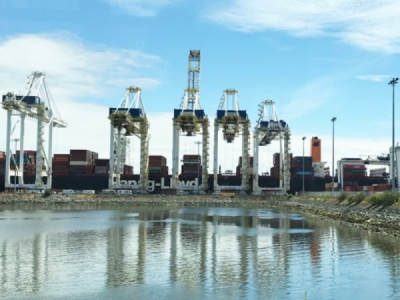
Posted on June 11, 2019
The City of Delta is a prime example of how port operations can drive the economy and bolster communities.
Roberts Bank hosts the largest container terminal in Canada, generating over $1 billion in economic activity every year. Port operations not only fuel Delta’s local economy, they power the country’s, too. By facilitating trade with over 170 markets across the world, port terminals across the Lower Mainland generate nearly $12 billion in national GDP every year – and that figure is only projected to grow.
But with growth comes challenges. Independent forecasts show the volume of container cargo is set to outstrip local capacity by the early to mid- 2020s. These constraints will have a deep impact on our local, provincial and national economy.
Shippers would be forced to slow and divert cargo to other ports along the U.S. coast, driving up costs for importers, exporters and, ultimately, Canadian consumers. More broadly, limited container capacity will stifle overall economic competitiveness and undermine our ability to participate effectively and efficiently in the global economy. If Canada does not improve its port infrastructure, we will be left behind.
In response, the Vancouver Fraser Port Authority has spent nearly a decade planning the Roberts Bank Terminal 2 project, which is designed to meet projected demand while protecting the environment and considering local communities.
In terms of location, the proposed terminal offers an innovative solution to the industrial land crunch squeezing numerous industries across the region. It also affords direct access to major truck and rail corridors that connect Delta with Surrey, other Lower Mainland communities and beyond. This project will play a crucial role in supporting Canadian businesses shipping goods to and from global markets, and ensuring Canada remains competitive and open for trade with growing economies around the world.
Situated in deep, subtidal water also reduces the potential impact on sensitive habitat. As we are hearing during public hearings now underway by an independent federal review panel, more than 70 studies involving over 100 scientists, have been conducted around this project over the past decade. The project has already made scientific contributions to the overall understanding of the ecosystem at Roberts Bank. The port authority has also committed to a comprehensive monitoring program to ensure proposed mitigation measures are working properly.
Lastly, this project would support thousands of middle-class jobs, as well as provide benefits to indigenous groups through training, employment, contract opportunities and community investments.
The expanded terminal would also require improved roads, intersections and traffic flows, which will benefit local residents and businesses that service the region.
Roberts Bank Terminal 2 has undergone significant study and review by independent subject matter experts and the appropriate regulators. The port authority has consulted with indigenous groups, local government and the public to gather and incorporate feedback into the project design. Given the current investment climate in B.C., these are the types of well-planned and forward-looking infrastructure projects that deserve – and need – our support.
Source: delta-optimist.com





